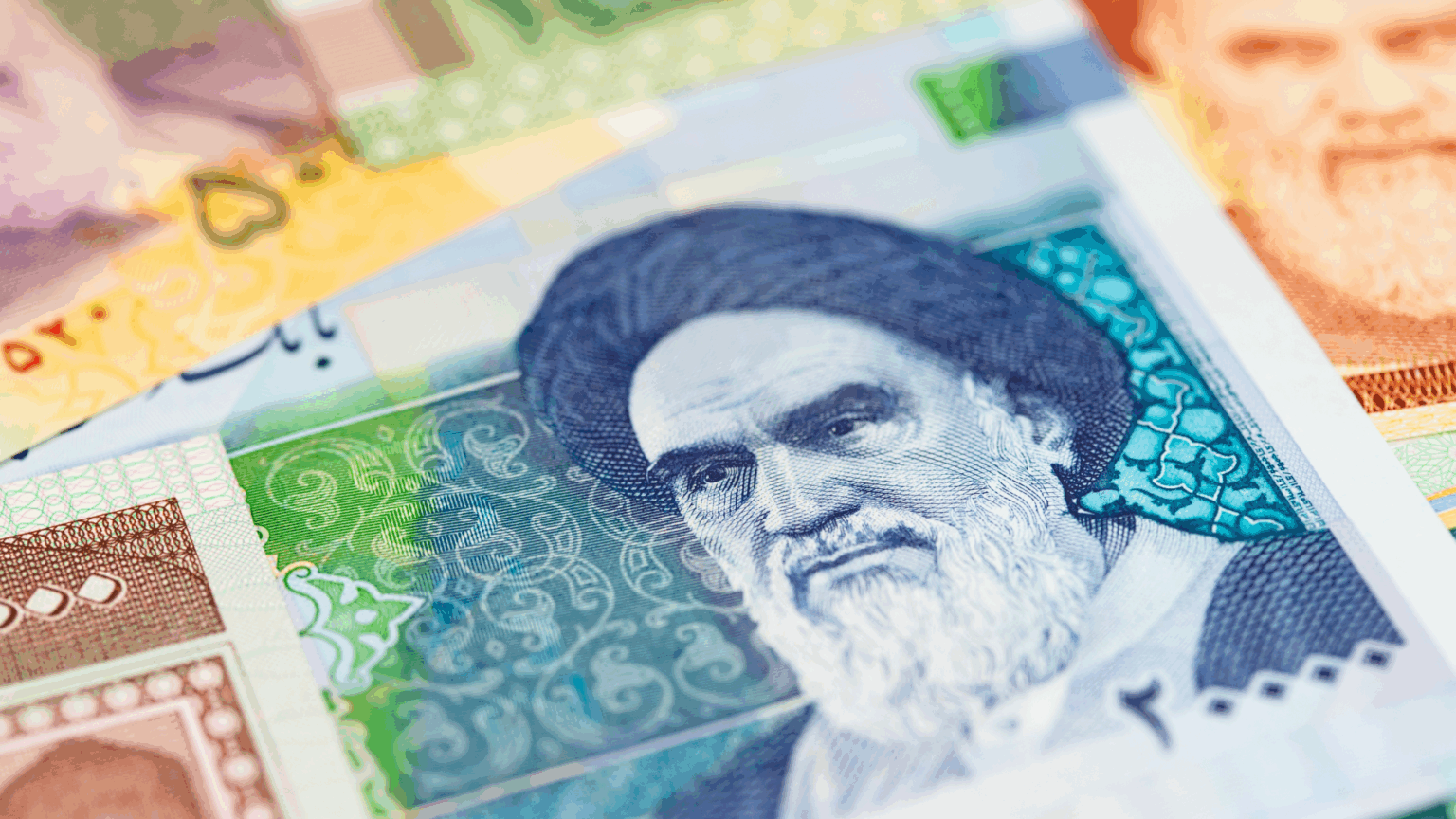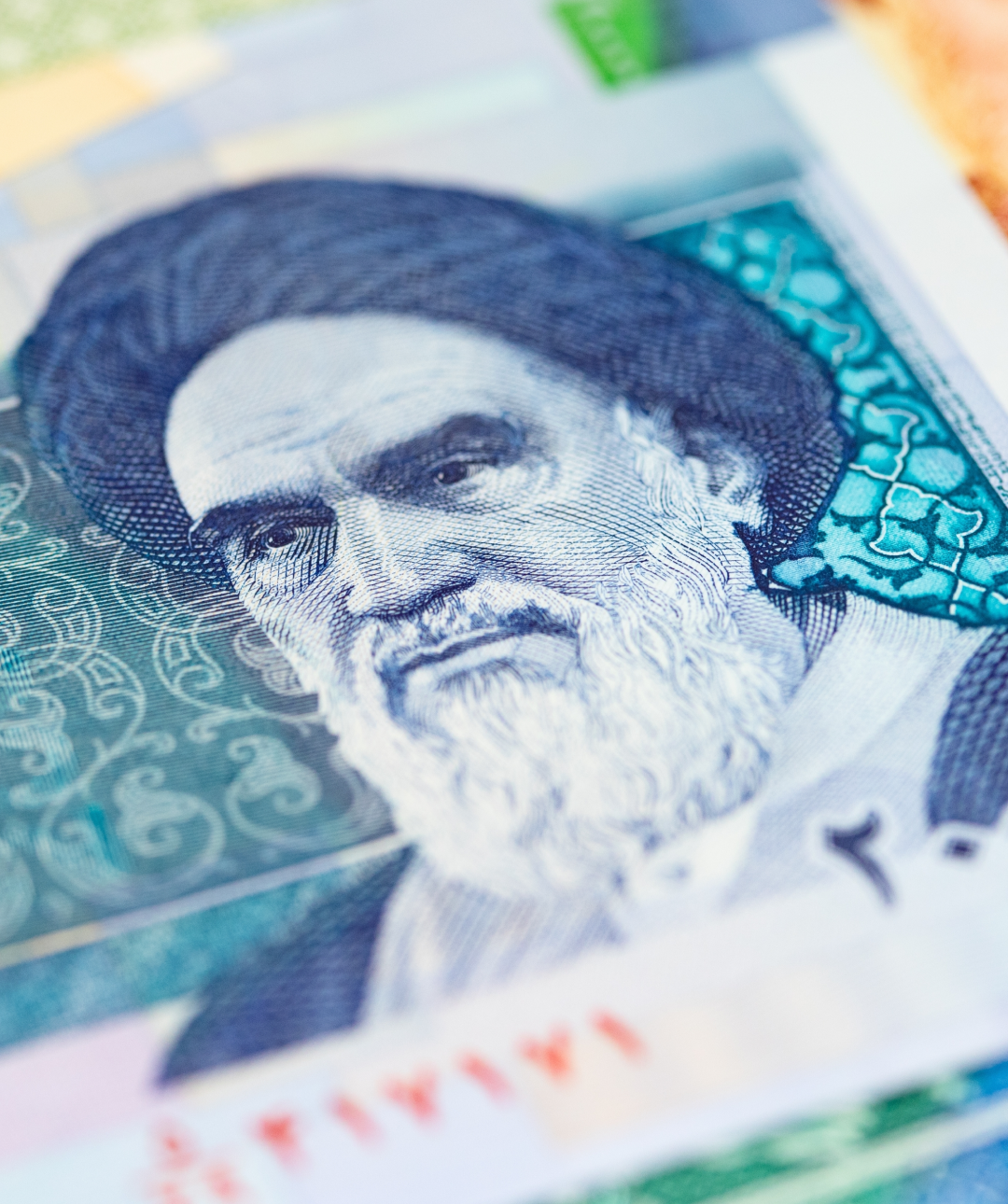Good morning, readers!
In the wake of the latest conflict with Israel, Iran has orchestrated a domestic crackdown, detaining more than 1,000 people, killing dozens, and targeting minority communities and activists. Alongside the arrests, the regime has increased financial controls, banned access to alternative currencies, and restricted the Internet, using the aftermath of war as justification to tighten its grip on civil society and dissent.
Meanwhile, in Russia, officials are targeting Bitcoin mining with the launch of a national mining equipment registry aimed at enforcing taxes, regulating energy use, and eliminating unregistered operations. A draft law would also empower courts to seize digital assets tied to unauthorized mining, an example of the Kremlin’s attempt to surveil and regulate mining within their own borders and a potential blueprint for other authoritarian regimes.
In Freedom Tech news, we highlight a new app under development by Twitter and Block co-founder Jack Dorsey called Bitchat. It enables offline, peer-to-peer, encrypted messaging using Bluetooth mesh networks, where messages hop locally from phone to phone. It holds promise as a tool to keep communications and transactions flowing when tyrannical rulers shut off the Internet. Dorsey vibe coded the tool in just a few days, and it is already available on iOS and Android and is being used on the ground by activists around the world.
We end by featuring the latest bitcoin++ Insider Edition interview, where Bitcoin developer Sosthene breaks down Silent Payments, a promising privacy improvement for Bitcoin addresses that can greatly benefit activists and nonprofits by better protecting their financial activity from surveillance by dictators.
With that, let’s jump into the news!

Global News
Iran | Financial Repression and Arrests
Following a 12-day conflict with Israel, Iran’s regime has escalated a domestic crackdown, using the aftermath of war as justification to tighten its grip on civil society and dissent. More than 1,000 people have been detained and dozens executed. Among those targeted are free speech activist Hossein Ronaghi, rapper Toomaj Salehi (later released), and members of Kurdish and Baha’i minority communities — including a troubling number of women and girls. But the repression hasn’t stopped with arrests. The economic fallout from the conflict has also accelerated: the Iranian currency plunged, wiping significant value from Iranians’ wages and savings. Instead of offering relief, the regime has tightened financial control: banning digital currency transactions, freezing online gold platforms, and censoring real currency exchange rates. And in some regions, Internet access has been significantly restricted. In effect, the Iranian regime is using the post-conflict moment to silence critics, seal off financial escape routes, and suppress dissent before it can grow.
Russia | Tracking Bitcoin Mining via National Registry
Russia launched a national registry to track Bitcoin mining equipment three months after the proposal was first floated by its Ministry of Energy. The move is designed to monitor energy use, enforce tax collection, and stamp out unregistered operations in key mining regions. A separate law, still in draft form, would also allow courts to seize digital assets linked to mining deemed “illegal.” Miners who fail to comply will face fines of up to 2 million rubles (about $22,000). Six regions are already under a full mining ban until 2031. Overall, Russia’s new Bitcoin mining registry poses serious risks to financial and civil liberties. By forcing miners to register equipment and comply with rules under threat of asset seizure or closure, the Kremlin gains greater surveillance and control over Bitcoin mining in Russia and offers a potential blueprint for other authoritarian regimes.
Hong Kong | Central Bank Intervenes to Defend Currency
The Hong Kong Monetary Authority was forced to intervene three times last week to defend the city’s decades-old currency peg to the US dollar. That peg has long stood as a symbol of Hong Kong’s financial independence under the “one country, two systems” framework that was supposed to guarantee freedoms distinct from mainland China. But that promise is rapidly fading. As Beijing expands its grip over Hong Kong’s political and civil life through new laws and surveillance, some now warn that a shift in the peg to the Chinese yuan is no longer unthinkable. Such a move would tie Hong Kong’s economy more directly to the mainland’s political agenda, opening the door to capital controls, more surveillance, and tighter restrictions on financial flows. This could erode any of the city’s remaining economic independence and put ordinary people’s savings and rights at greater risk.
Togo | Pro-Democracy Demonstrators Demand Gnassingbé’s Resignation
In Togo, at least seven people were killed and dozens arrested last week as security forces cracked down on pro-democracy protests. Togolese took to the streets to demand the resignation of Faure Gnassingbé, who has ruled the country for nearly two decades, continuing his family’s 50-year grip on power. The unrest came after recent constitutional changes that abolished presidential elections and allowed Gnassingbé to stay in power indefinitely through a new, unelected council. As protests spread, security forces responded with tear gas, violent raids, and house-to-house arrests. Social media was restricted, and land borders were also closed. Togolese activist Farida Nabourema warns that the regime is now rushing sham municipal elections and organizing staged pro-government rallies. But not all is lost; Nabourema also publicly thanked Jack Dorsey for launching Bitchat, a new peer-to-peer Bluetooth messaging app that bypasses the internet entirely. “You’ve just saved us from dictator Gnassingbé’s censorship of social media and Signal,” she wrote on X.
Turkey | Detains Three Opposition Mayors
On July 5, Turkish officials arrested three more opposition mayors from Adana, Antalya, and Adiyaman as part of what President Recep Tayyip Erdoğan’s government claims is an anti-corruption investigation. The arrests follow the March detention and removal of Istanbul’s mayor, Ekrem Imamoglu, a leading presidential contender and Erdoğan’s most prominent opposition. More than 120 city hall officials were also arrested in Izmir earlier this week. This is only the latest chapter in Erdoğan’s broader crackdown. Mass protests earlier this year against Imamoglu’s arrest were met with force, and over 2,000 demonstrators were detained. With inflation still above 39% and economic uncertainty worsening, more Turks are turning to protest, only to be met with criminalization, censorship, and political repression. As elected officials are jailed and local governments suppressed, the space for democratic accountability in Turkey continues to shrink.
Recommended Content
Arsenal’s Dirty Secret: Rwanda, Blood Money & Corruption with Anaïse & Carine Kanimba
In this interview, Anaïse and Carine Kanimba, daughters of Paul Rusesabagina, the real-life hero whose actions during the 1994 Rwandan genocide inspired the film “Hotel Rwanda,” join Peter McCormack to unpack how Rwanda’s corrupt regime has used its partnership with sports team Arsenal FC as a form of “sportswashing.” This refers to the idea of using sports to improve the reputation of, in this case, an authoritarian government. Together, they recount stories of brutal repression, political exile, and the deployment of Pegasus spyware to surveil dissidents. The conversation underscores Rwanda’s harsh crackdown on dissent and the moral cost of corporate complicity. Watch the full interview here.

Bitcoin News
Bitchat | P2P Messaging Over Bluetooth
Jack Dorsey launched a new app called Bitchat, a peer-to-peer messaging tool that works entirely offline using Bluetooth. It doesn’t require Internet, servers, or phone numbers, just nearby devices. Messages sent on Bitchat promise to be end-to-end encrypted and hop locally (up to 300 m) from one phone to another until they reach their destination. This is described as a “store and forward” system and allows communication to continue in places with Internet shutdowns or surveillance. Bitchat also includes privacy-protecting features like an emergency data wipe and hidden message traffic to make tracking harder. Some users are also sending bitcoin ecash over bitchat, exchanging economic value permissionlessly and offline. And the developer Calle successfully adapted the Bitchat app so that it now works on Android devices, expanding its accessibility. For activists, journalists, and individuals living under tyranny, Bitchat, while still early in development, shows promise as a way to communicate and transact when dictators shut off the Internet. Try it here.
Cake Wallet | Airgap Any Device
Cake Labs, the team behind Cake Wallet, is now working on Cupcake, a new open-source app that turns any spare smartphone into an air-gapped signing device. Air-gapped devices are devices completely isolated from the internet and any form of network communication. They constitute a powerful security feature that usually costs hundreds of dollars and requires specialized hardware. It allows users to interact with their private keys offline (and, by extension, their Bitcoin) while minimizing the risk of hacks or malware in doing so. Anyone with a secondary phone disconnected from the Internet can make use of this as a practical, low-cost tool for Bitcoin management. This is especially useful for those facing tyranny or financial repression.
Damus | Apple App Store Removes Zaps
Apple has once again requested that Damus, a popular nostr client, remove “zaps” (permissionless Bitcoin tips) from its app, citing App Store rules that require all in-app payments to go through Apple’s in-app purchase system. This move is not just frustrating for Damus developers; it’s a net loss for activists, independent creators, and anyone relying upon free expression and permissionless funding. Damus has long faced scrutiny for its support of free expression, evidenced by the fact that it was pulled from the App Store in China just two days after it was approved. Apple’s decision to make access to Damus conditional on the removal of zaps reduces the financial freedom it can offer at a time when freedom tools are most urgently needed by dissidents and journalists speaking out against authoritarian rulers in Togo, Turkey, and beyond.
Breez | Expands Lightning Economy Through the Breez SDK
Breez, a company helping build out the Lightning Network ecosystem, announced its latest cohort of Bitcoin wallets integrating the Breez software development kit (SDK). The SDK helps wallets to more readily integrate the Lightning Network and unlock instant payments with low fees for users. Among the most impactful new integrations is Sorted, a self-custodial wallet built for feature phones that can bring greater Bitcoin access to hundreds of millions of people without smartphones. This is a big step for the financial inclusion and agency of those living under authoritarian regimes. Another notable integration is Grimm App, which is launching soon in Africa and is designed for users with spotty Internet. It helps Africans living rurally to more readily send and receive Bitcoin payments with conversion into three different African currencies.
OpenSats | Announces 12th Wave of Nostr Grants
OpenSats, a public nonprofit that funds free and open-source software and projects, announced its 12th round of grants for the open-source and decentralized nostr protocol. This wave includes funding for projects that advance secure identity management and censorship-resistant development. Grantees include Gitplaza, an offline-compatible and open-source alternative to GitHub built on nostr. It lets developers collaborate and manage code without relying on a closed-source platform, better securing the development foundations of tools for financial freedom. Additionally, OpenSats provided a grant to Frostr, a threshold signing protocol for nostr built on FROST (Flexible Round‑Optimized Schnorr Threshold). It enables activists and at-risk individuals to split their private keys across multiple devices when using nostr. Learn more about the grantees and how they benefit users in authoritarian regimes here.
Recommended Content
bitcoin++ Insider Edition: Sosthene on Silent Payments
In the latest bitcoin++ Insider Edition interview, Bitcoin developer Sosthene explains Silent Payments, a promising privacy improvement for Bitcoin. Silent payments allow dissidents and nonprofits to receive donations through a single static Bitcoin address, which automatically creates new, unique Bitcoin addresses for each donation. This ensures that both senders and recipients can keep their financial activities private without revealing them to the blockchain or authoritarian eyes. Sosthene breaks down the current implementation for Silent Payments, their technical underpinnings, and the state of Bitcoin privacy. Watch it here.







